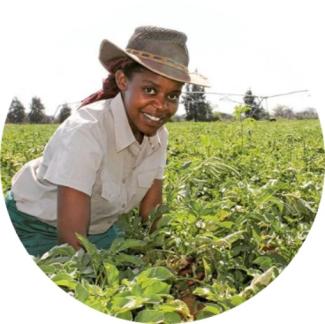UNIDO study exploring innovative solutions to slash compliance costs for South Africa’s Essential Oils SMEs
High compliance costs from regulatory and market requirements are a major concern for South Africa's essential and vegetable oils industry, particularly for small and medium producers (SMEs) who struggle to compete. A recent study explored innovative models to reduce these costs and address gender disparities, focusing on key species such as Buchu, Cape chamomile, Helichrysum, and Rose geranium for essential oils, along with Baobab and Marula. A feedback webinar attracted >100 participants from academia, public and private sectors.
To enhance the competitiveness of SMEs in market access, the study identified four key cost-reducing models: cooperatives, out-grower schemes, incubation hubs, and contract harvesting, with a hybrid model combining contract farming and cooperatives recommended. This model requires policy reforms, accessible financing, capacity building, and stakeholder collaboration. The study highlighted disparities in women's participation in the industry; while 76% are involved in raw material production, only 23% hold technical roles. Training for women's leadership is essential. One of the SMEs remarked, “The insights gathered provide a roadmap for further empowering women, which is essential for driving innovation and growth in this sector.” Additionally, while initial grants assist startups, further investment is necessary for scaling production and tapping into the international market for indigenous oils.
“This study represents a significant step towards fostering a competitive, sustainable, and inclusive landscape in South Africa's essential and vegetable oils industry,” stated Ms. Karen Swanepoel, Executive Director, SAEOPA.
The United Nations Industrial Development Organization (UNIDO) Global Quality and Standards Programme – South Africa project (GQSP-SA) Phase II is funded by the Swiss State Secretariat for Economic Affairs SECO, and implemented in cooperation with the Department of Trade, Industry and Competition (the dtic) and the Southern African Essential Oil Producers’ Association (SAEOPA).
Further details can be viewed Here
Lead article on manufacturing pg. 36
For further information, please contact GQSP-SA II Project Manager, Mr. Bernard Bau (B.Bau [at] unido.org)

